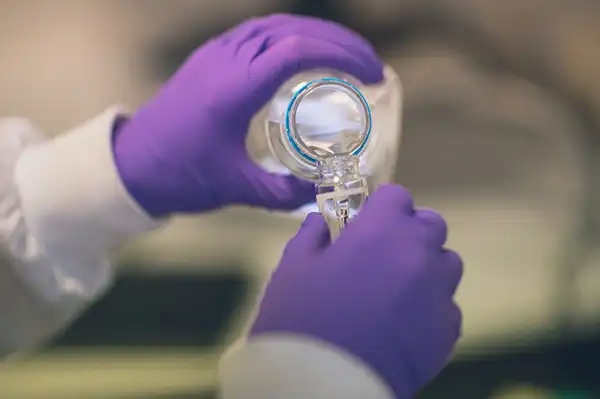- Marketplace
- Challenges
- Help us maximise the efficiency of our PFAS analysis
What are PFAS?
PFAS (per-and poly fluoroalkyl substances) are a group of around 9,000 individual substances which sometimes are referred to as ‘forever chemicals’ because they have unique chemical properties that make them long-lasting and ubiquitous in the environment. These unique chemical properties mean that they’re used in a variety of processes and products such as cosmetics, manufacturing, kitchen equipment and outdoor clothing/shoes.
PFAS are recognised as an emerging risk to water supplies globally because some PFAS have been associated with adverse effects in animal and human studies at sufficient levels.
To address this, water companies monitor their sites on a risk-based basis according to guidance from the independent drinking water quality regulator, the Drinking Water Inspectorate (DWI). Based on current knowledge and company monitoring data, the DWI states that the low levels of PFAS detected in some untreated water abstracted for public drinking water supplies have no acute or immediate impact on human health.
Increasing our PFAS monitoring
Our understanding of the current and future level of risk requires further development, to ensure we make well-informed decisions on mitigation measures to best protect public health.
Each of the sources at our 64 water treatment centres (WTCs) are sampled multiple times per year for PFAS. But there is a lack of historical data because PFAS have only been monitored in UK drinking water since 2021.
The next investment period, 2025-30, will see a significant uplift in monitoring. But PFAS monitoring is challenging for many reasons such as:
- not all individual PFAS can be measured
- a limited number of laboratories offer accredited testing
- analysis is susceptible to contamination and prone to variability
- accredited analysis currently costs several hundred pounds per sample.

What are we looking for?
We are running this Marketplace challenge to explore how we can maximise the efficiency of our PFAS analysis. Therefore, we are seeking:
- novel analytical methods or potential surrogate measurements for PFAS and source tracking, with the aim of reducing overall analysis costs
- innovative ways to interpret the data we collect, in order to maximise the value of any analysis undertaken.
We are conscious that there is a great deal of ongoing research activity into PFAS. As such, we are also open to submissions setting out anything else that might be of interest in this area. PFAS treatment is not the focus of this challenge, but we would be interested to hear about any emerging treatment technologies not currently under investigation by the industry and partners.
How to get involved
We are very happy to answer any queries you may have in order to consider responding. Please send queries to marketplace@wessexwater.co.uk by 5pm on Thursday 31 October 2024. We will respond to them all here (unless there are questions that wouldn’t be appropriate to share answers to that may relate to the specific IP of an organisation). Query responses are now available: PFAS Challenge Questions
We then ask interested parties to submit their proposals by 5pm on Wednesday 27 November 2024. Please email them to marketplace@wessexwater.co.uk. Please keep submissions concise at this stage to give our team the ability to review all that comes through. Submissions should ideally include the following, where this is available:
- details on the solution proposed
- indicative costs (e.g. previous schemes/case studies, or typical unit rates)
- case studies of any UK or worldwide use
- your expertise in this area.
We look forward to hearing from you!

Next steps
We will review all the submissions to identify any we would like to explore further. We’re aiming to feedback to companies accordingly in January 2025.
We also plan to feedback more generally on the challenge on our blog page.
If you want to hear about other Marketplace challenges over a range of areas when they are released, you can sign up to our mailing list.
Note that participation in this Marketplace challenge does not guarantee a contract at the end. A tender may be required and Wessex Water reserves the right to stop the project at any time.
